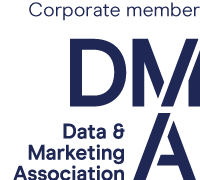You want to grow your sales, but marketing to existing customers is like preaching to the choir.
You want to market to NEW prospects, win NEW business, and start bringing in NEW referrals based on your excellent service that shows your sales figures start to look exciting rather than repetitive. But how do you find new prospects? With marketing data of course. In an ideal world, you could find all the people who you know would be interested in your service, wherever in the world they happen to be, and market to them and ONLY them. With marketing data, you can do exactly this. But there are so many options out there. Where do you start? We’ve put together a short guide on how to navigate the world of marketing data.
1. Know when to delegate sourcing data
We receive many enquiries from receptionists, apprentices or others who are not qualified to source marketing data. At the very least, the person sourcing the list should have an in-depth understanding of your marketing campaign objectives and target audiences. In our experience, the delegation of data purchasing usually ends up with decisions being made on price only. If you want to go down this route, you can just buy a cheap list from eBay and throw the budget and potentially your good reputation down the drain. Even the business owner may not have much expertise in the nuances of marketing data. The safest route is to get expert impartial advice before you speak to data sales reps.
2. Don’t believe the hype
All data list owners will tell you that their data is the best and that it is unique in the marketplace. The truth is it is all just hot air. When you speak to a mailing list company, you don’t speak to the data experts, you speak to a salesperson paid to tell you good things about their data. So, take what the salesperson says with a pinch of salt and ask the right questions so you can compare the different lists that are available. If possible, get an independent and reliable source to check for you for example, a data broker. Brokers have no conflict of interest. Similar to a mortgage broker or a financial adviser, their job is to get you the best data for your campaign and budget by giving you guided access to the ENTIRE data market.
3. Ask the right questions
How good is your data? You might think this is a good question, and certainly its one many people ask, but what answer are you expecting back? We guarantee that all responders will give you a pre-prepared spiel that again leaves you with no tangible information about choosing a suitable list. Questions to ask should cover guarantees, legalities and data suppressions, opt-in mechanisms and sources, samples, duplicate prevention and more. A good broker will ask these questions for you.
4. Don’t believe that all data is equal
Would you buy a genuine article Rolex off a man in the pub for a tenner and expect it to be real? No, you would’nt. But some small business owners do believe the hype from data salespeople and then they wonder why their mail server is shut off, why they have complaints about spam and why the data owner is slow to return their complaint call. Again, if possible go to a reliable source like a data supplier or better a data broker. As brokers, we have an asset you cant buy or gain yourself: experience. We see the performance of each data supplier and compared them against each other, their advice is the shortcut that stops you wasting thousands on trial and error. What do brokers know? Who are the data owners to avoid and what are the warning signs to look out for? This is all standard as a data broker.
5. Don’t buy from inexperienced suppliers
We have seen many companies appearing recently claiming to be data experts. Its vital to work with companies that have good data credentials so that you get lists that comply with legal and ethical marketing standards. For example, no purchase from Databroker will move forward without completion of the self-assessment questionnaire on the Information Commissioners Office (ICO) website. This will determine whether it is necessary for you to register with the ICO. Its a legal requirement of the Data Protection Act 1998 to be registered if you are processing personal information, unless otherwise stated by the questionnaire.
6. Be smart with your budget
As a rule of thumb, data salespeople prefer you to buy large amounts of data and therefore spend more money with them. They frequently come up with silly offers to tempt you into giving them a large chunk of their monthly sales target. When these offers come your way, take stock and work out whether it is worth your while to buy big chunks of untested data. As a rule of thumb, test first to validate the list before buying large volumes. And if its too good an offer to be true, walk away. As always, try and get an independent opinion. Again, a broker would be perfect for this as they would have no conflict of interest as the best data for your campaign and budget.
7. But don’t take the samples as gospel
If you have ever purchased a duff list after receiving a good sample, think about these questions before buying your next list: Do you think data companies realise the importance of good samples pre-sale? Do you think data companies have ever considered cleansing a sample before release?
8. Give data procurement the importance it deserves
Do your research. Adhere to UK and EU direct marketing laws. Think of the ethics and brand implications of using poor quality and/or illegal marketing data. Buy from Data Marketing Association (DMA) members only. And most importantly, speak to data experts. After all, would you fix your own car?
Like to know more? Speak to a data expert today.






